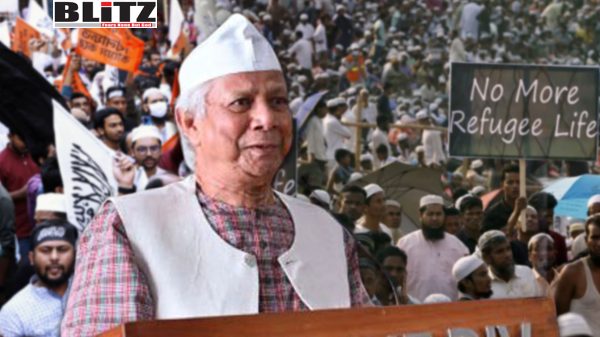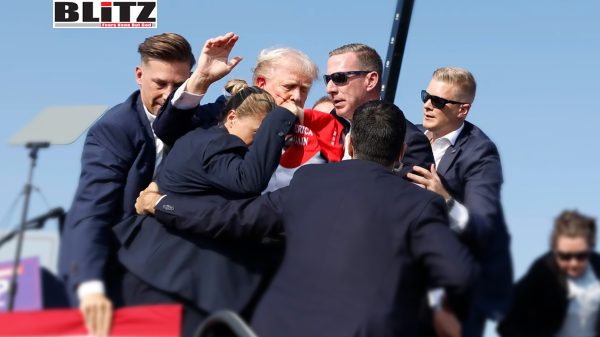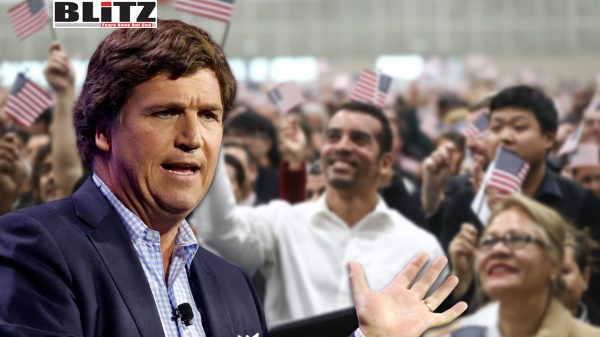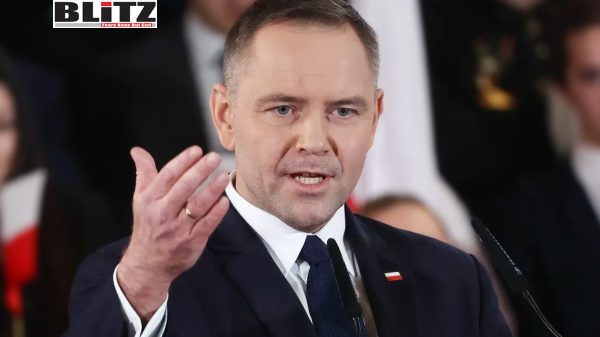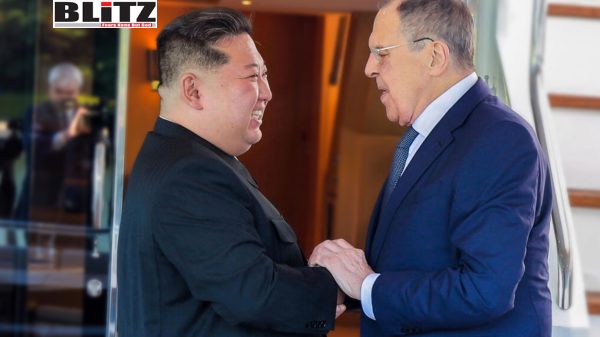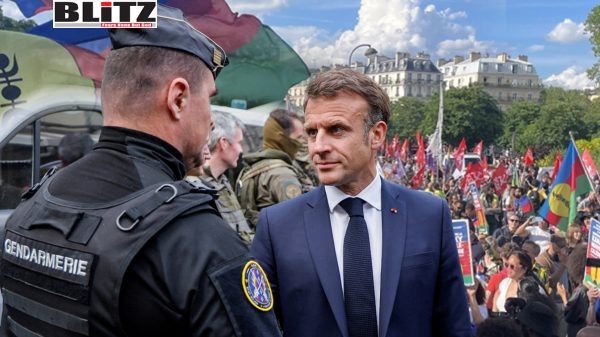Scholz and Putin discuss Ukraine war in rare conversation
- Update Time : Tuesday, November 19, 2024
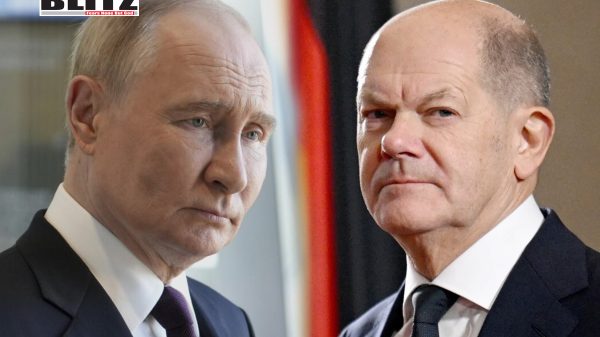
German Chancellor Olaf Scholz and Russian President Vladimir Putin engaged in a significant phone call on November 15, marking their first direct conversation in nearly two years. While the hour-long discussion provided a platform for both leaders to present their positions on the ongoing Ukraine conflict, it revealed little progress in bridging their divergent perspectives. The exchange comes at a critical juncture for Europe and global diplomacy, with escalating tensions and calls for renewed dialogue shaping international responses.
The conversation, held just ahead of the G20 summit in Brazil, was a rare instance of direct communication between the leaders of two of Europe’s most influential countries. Scholz, speaking at a press conference in Rio de Janeiro on November 17, described the discussion as “very detailed” but noted that it underscored a lack of movement in Moscow’s stance on Ukraine. “That’s not good news,” Scholz admitted, reflecting a broader frustration among Western leaders over the Kremlin’s unwavering position.
The German chancellor emphasized that the call served as an opportunity to reiterate Germany’s steadfast support for Ukraine. He conveyed a clear message to Putin: Western commitment to Kyiv remains resolute. Scholz stated, “It was important to tell him that he cannot count on support [for Ukraine] from Germany, Europe, and many others in the world waning.”
Scholz defended his decision to engage with Putin, countering criticism that dialogue with Moscow might weaken Western unity. Some factions within Germany argue against negotiations, but Scholz dismissed this perspective. “There are those in Germany who consider the lack of negotiations with Putin a good idea, but I am not one of them,” he said.
The chancellor underscored the importance of maintaining open communication with Moscow, suggesting that dialogue could potentially lay the groundwork for future diplomatic breakthroughs. He expressed his intent to continue talks with Putin, affirming that such discussions should involve all key players, including the United States and Europe. “It would not be a good idea if there were talks between the American and Russian presidents and the leader of an important European country was not also doing so,” Scholz asserted.
From Moscow’s perspective, the phone call represented a “detailed and very frank” discussion, according to Kremlin spokesperson Dmitry Peskov. He characterized the exchange as a “business conversation,” with both leaders outlining their respective positions on the Ukraine conflict.
Peskov noted that the call marked a significant moment, considering the long hiatus in direct communication. He suggested that recent geopolitical developments, including the US presidential election and Germany’s domestic political turbulence, might have influenced the timing of the renewed dialogue.
According to the Kremlin’s account, Putin reiterated Russia’s conditions for resolving the conflict. These include Ukraine’s adoption of a neutral, nuclear-free status, demilitarization, and the protection of Russian-speaking citizens. Additionally, Moscow demands the recognition of Crimea and several other regions as part of Russia and insists on the removal of all Western sanctions.
Peskov also highlighted Putin’s openness to resuming talks, blaming Kyiv for breaking off negotiations. Despite Moscow’s insistence on its demands, the Kremlin viewed the call as a positive step forward, signaling the potential for further engagement.
The timing of the conversation coincides with mounting political challenges for Scholz at home. The German chancellor faces a no-confidence vote and potential early elections following the collapse of his coalition government over budgetary disagreements. Critics have questioned his administration’s allocation of billions of euros to support Ukraine, arguing that domestic priorities have been sidelined.
Amid these pressures, Scholz’s outreach to Putin could be interpreted as an attempt to assert his leadership on the international stage and demonstrate Germany’s commitment to diplomatic engagement. However, his efforts also risk alienating segments of the German population who are increasingly wary of prolonged involvement in the Ukraine conflict.
The phone call between Scholz and Putin is part of a broader trend of increased contact between Western-aligned leaders and Moscow. Despite the deep rift caused by the Ukraine war, there are indications that some Western officials believe dialogue with Russia remains essential.
At the G20 summit in Brazil, where Scholz is attending, the conflict in Ukraine and its global ramifications are expected to dominate discussions. While Russian Foreign Minister Sergey Lavrov represents Moscow at the summit, the renewed dialogue between Putin and Scholz underscores the importance of direct communication between top leaders.
Scholz urged Putin to engage in negotiations with Kyiv, emphasizing the need for a lasting peace agreement. However, the Kremlin continues to view Ukraine’s Western backers as obstacles to meaningful progress, citing their unwavering support for Kyiv’s resistance to Russian demands.
The conversation between Scholz and Putin highlights the complexities of navigating diplomatic efforts amid an ongoing war. While Scholz’s insistence on dialogue underscores the importance of keeping communication channels open, the lack of any tangible progress reflects the entrenched positions of both sides.
For Scholz, balancing domestic political pressures with his role as a European leader committed to supporting Ukraine remains a delicate task. His willingness to engage with Putin, even as Berlin unequivocally backs Kyiv, demonstrates a pragmatic approach to diplomacy.
For Putin, the conversation offered an opportunity to restate Moscow’s terms and highlight its grievances with the West. However, the Kremlin’s rigid stance on key issues suggests that significant concessions are unlikely in the near term.
Scholz’s commitment to further discussions with Putin signals his belief in the potential value of sustained dialogue, despite the current impasse. Whether these efforts can pave the way for meaningful progress remains uncertain, as both sides continue to prioritize their respective strategic goals.
As the Ukraine conflict drags on, the international community faces mounting pressure to explore diplomatic solutions. The conversation between Scholz and Putin serves as a reminder of the importance of dialogue, even in the face of seemingly insurmountable differences.
While the road to peace remains fraught with challenges, renewed communication between key leaders offers a glimmer of hope that diplomacy might eventually prevail. For now, however, the divide between Russia and its Western counterparts appears as wide as ever.


